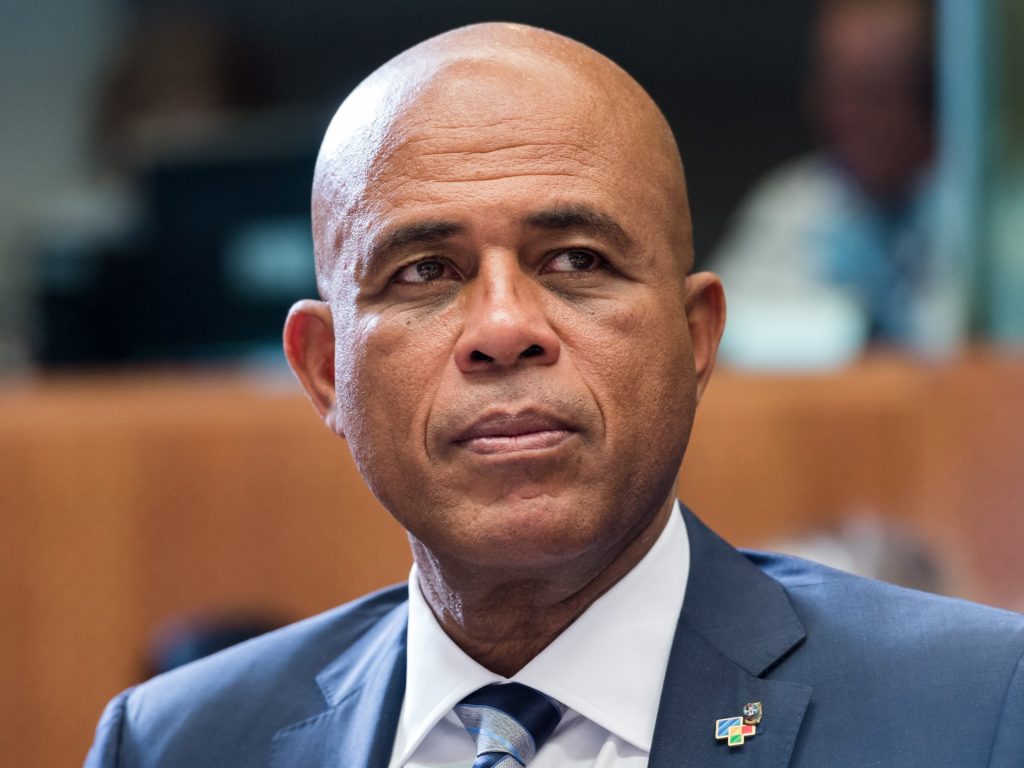Haiti’s former President Michel Joseph Martelly has been accused by the US Treasury Department of facilitating drug trafficking to the United States. He is said to have abused his influence to traffic dangerous drugs, sponsor gangs, and launder illicit drug proceeds during his presidency from 2011 to 2016. The Treasury Department’s action against Martelly is aimed at disrupting the drug trafficking, corruption, and other illicit activities that have contributed to the ongoing crisis in Haiti. The US and international partners are committed to addressing the issues of gang violence and political instability in the country.
The situation in Haiti has worsened significantly, with armed groups forcing the resignation of Prime Minister Ariel Henry in February. Gang violence has escalated, with criminal groups controlling a large portion of the capital Port-au-Prince and residents facing threats of murder, rape, and kidnapping for ransom. In an effort to bring stability to Haiti, hundreds of police officers from Kenya have been deployed as part of an international effort to address the political, social, and economic chaos in the country. Gang wars have led to the displacement of over half a million Haitians, and nearly half of the country’s population is facing acute hunger, with millions at risk of starvation, according to the United Nations.
The US sanctions against Martelly come in response to his alleged involvement in drug trafficking and support for criminal activities that have exacerbated the crisis in Haiti. The sanctions freeze any of Martelly’s US assets and prohibit Americans from engaging in any dealings with him. These actions mirror similar sanctions imposed by the Canadian government in 2022 against Martelly and other former Haitian political leaders accused of profiting from armed gangs. The international community is working to address the root causes of the crisis in Haiti, including corruption, drug trafficking, and gang violence.
Haiti’s ongoing crisis is fueled by a combination of political instability, social unrest, economic challenges, and widespread gang violence. The country has long struggled with poverty and inequality, with the current situation exacerbated by the power struggles and corruption within the government. Gangs have taken advantage of the chaos to assert control over large areas of the country, leading to widespread displacement and a humanitarian crisis. The international community, including the US and other partners, is working to address these challenges and support efforts to bring stability and relief to the people of Haiti.
The United States and other international partners are committed to working with Haiti to address the root causes of the crisis, including corruption, drug trafficking, and gang violence. The sanctions against Martelly and other corrupt political elites are part of a broader effort to disrupt the networks that perpetuate the ongoing crisis in the country. By targeting those who facilitate illicit activities, the US and its partners seek to create a more stable and secure environment for the people of Haiti. It is essential to address the underlying issues that have contributed to the crisis and to support efforts to rebuild and strengthen Haiti’s institutions and communities.
The situation in Haiti remains dire, with millions of people facing acute hunger, displacement, and violence. The international community is stepping up its efforts to provide humanitarian aid, support security and stability, and promote long-term development in Haiti. By addressing the root causes of the crisis, including corruption, drug trafficking, and gang violence, the US and its partners aim to create a more sustainable and secure future for the people of Haiti. It is crucial to continue working together to address the challenges facing the country and to support efforts to build a more peaceful and prosperous Haiti for all its citizens.















